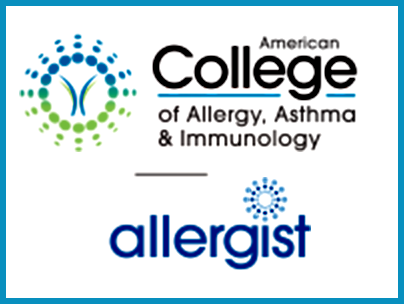Earlier this week, we reported on a study by the American Thoracic Society (ATS) suggesting parents of children with poorly controlled asthma have them tested for peanut sensitization. The American College of Allergy, Asthma & Immunology (ACAAI) disagrees.
Shortly after the ATS announcement, Dr Matthew Greenhawt, MD, FACAAI issued a statement on behalf of the ACAAI. Greenhawt is an assistant professor in the Division of Allergy and Clinical Immunology at the University of Michigan and a member of U-M’s Child Health Evaluation and Research and Evaluation Unit in the Department of Pediatrics.
According to Greenhawt, “Such testing could potentially lead to misdiagnosis, and represents an unnecessary and unjustified use of resources. While many of the children in the abstract are peanut sensitive on testing, it raises a question of relevance as to why testing was performed. There is no evidence that diagnosing peanut sensitization better controls chronic asthma. Chronic asthma is not a manifestation of peanut sensitization or allergy. There is no practical value to testing in this situation because these children are not showing any signs of possible peanut allergy.”
In the statement, Greenhawt provided this additional commentary regarding the ATS study:
- A food allergy results in specific, acute symptoms (e.g., hives, wheezing, cough, vomiting, etc.), developing within approximately 2 hours of ingestion of a suspected allergen. Without such history, testing is not indicated.
- Chronic, poorly controlled asthma is not an indication of a “hidden” food allergy. Food allergen testing was not indicated in any of these patients.
- Positive allergy blood tests (or skin tests) alone are insufficient to make a diagnosis of food allergy. Many more individuals test positive than will have actual food allergy. Testing for the presence of sensitization to a food is of no value, and cannot be interpreted when positive if the patient does not develop symptoms after eating that particular food.
- While approximately 1/3 of food allergic children develop asthma, and asthma in a food allergic child is a risk factor for more severe reactions, these risks are not associated with the asthmatic child under poor control, without a presumption of a known food allergy. Existing food allergy guidelines do not indicate testing in this situation. However, such children may benefit from inhalant allergen testing to better their asthma control.
We presume there will be more commentary that results from this exchange and will keep you informed of developments.






While I do see a direct connection between poorly controlled asthma and peanut allergy, I also see no harm in getting an allergic patient tested to peanut. The answer to this question may be TRUE , TRUE and Unrelated . It should be noted that having asthma renders treatment of anaphylaxis far more daunting.
Should have stated while I “don’t” not “do” see. Couldn’t edit the comment in time.